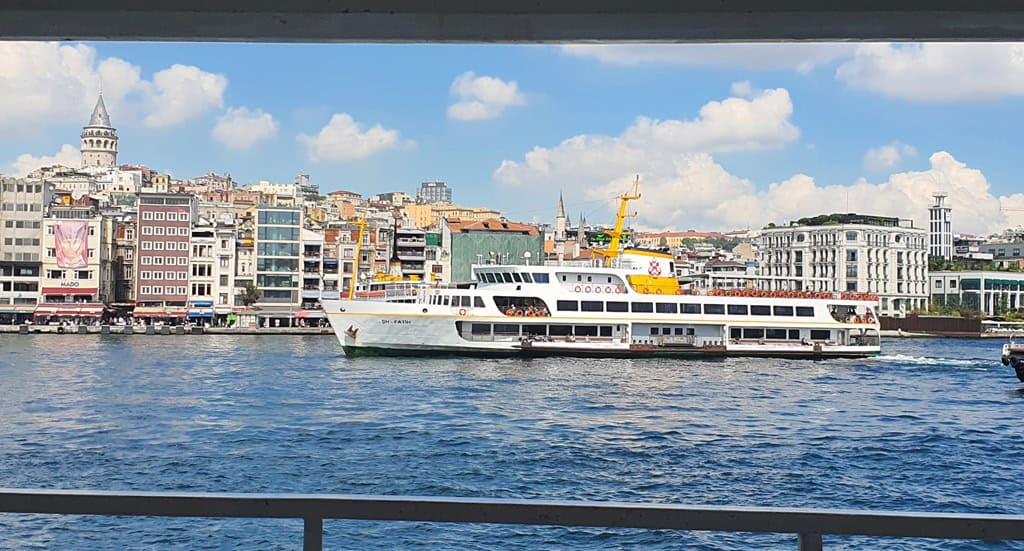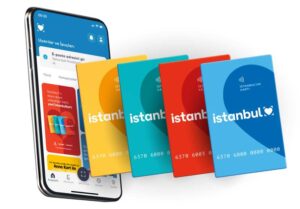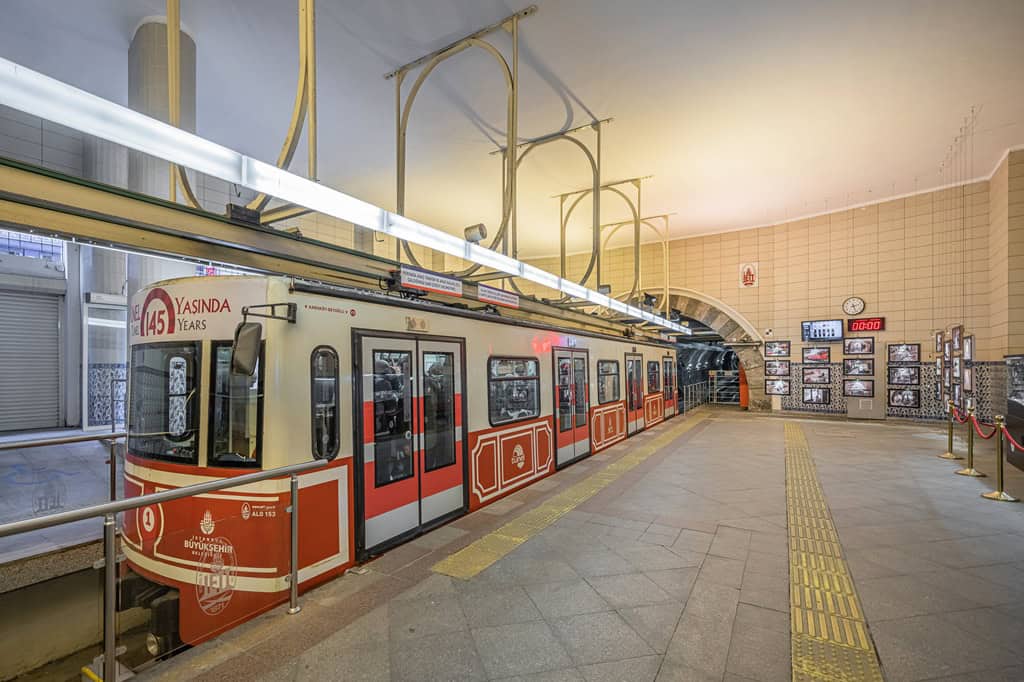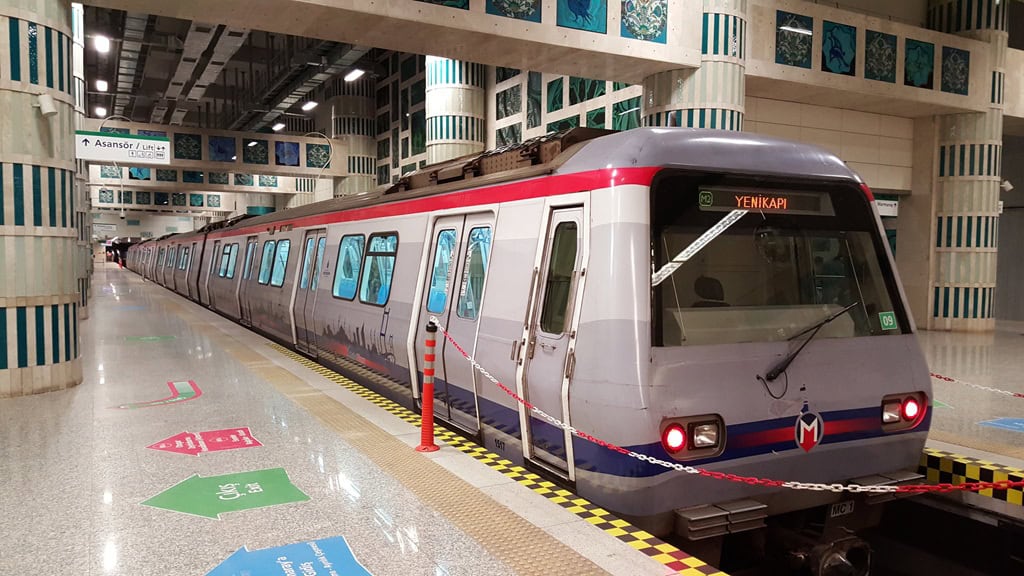Complete Guide to Getting Around Istanbul: Public Transport Tips for Tourists
Navigating Istanbul can feel overwhelming at first—but don’t worry! This city offers one of the most affordable and efficient public transport systems in Europe. Whether you’re heading to historic Sultanahmet, lively Taksim, or crossing continents by ferry, Istanbul’s metro, trams, buses, and ferries make it easy. In this guide, you’ll find everything you need to travel like a local—from how to get an Istanbulkart to the best routes and safety tips.
- Click here if you need private tour guide in Istanbul
- Click here if you want fast entry to Hagia Sophia & Topkapi Palace
Understanding Istanbul’s Public Transport System
Istanbul has a vast and integrated public transport system covering metros, trams, trains, buses, ferries, electric cars (in the Princess Islands), 3 funiculars and 2 cable cars. The only real challenge is the city’s size and geography—divided by the Bosphorus and Golden Horn, with many hills and valleys—so compared to a mid-sized European city, distances are longer and more transfers may be needed.

The Istanbulkart is the main travel card, valid on all public transport and even municipal toilets. You can also buy 10-use disposable cards from machines, which are helpful for short stays. In urgent moments, you can simply tap your contactless credit card directly on buses, metros, or ferries. All options work across the entire network.
💳 Istanbulkart and 10 Pass (OnGeç) Cards
Ticket price and how much does it cost the card?
ISTANBULKART is the main transportation card in the city and costs 130 TL (around €3 as of May 2025). It is personalized and can be blocked if used for more than 4 consecutive taps, so it’s not meant for group sharing. The standard fare for a single ride is 27 TL, but the amount deducted can vary depending on the type of vehicle and number of transfers.

ONGEÇ KART; as an alternative, you can buy a 10-Ride Card (305 TL) from ticket machines. These cards are not personal, come with no extra card fee, and can be used by multiple people, even in succession. Each ride deducts a fixed fare, regardless of transfers, making it a better choice if you’re not changing vehicles frequently.
Both cards work on all public transport vehicles, and can also be used for municipal toilets.
| 💳 Card Type | 🧍♂️ Personalized | 👥 Multi-user | 💰 Cost (May 2025) | 🚍 Fare Per Ride | 🔁 Transfers | 🛂 Limits |
|---|---|---|---|---|---|---|
| 🟦 Istanbulkart | ✔️ Yes | ❌ No | 130 TL (€3) + Load | from 27 TL* | Discounted | Max 4 taps/user |
| 🔟 10-Ride Card | ❌ No | ✔️ Yes | 305 TL (No extra fee) | Fixed per ride | ❌ No discounts | No limit |
| 💳 Credit Card | ❌ No | ✔️ Yes | Varies by bank/rate | 40 TRY | ❌ No discounts | No limit |
🚋 Most Useful Tram, Metro, Funicular & Ferry Lines for Tourists in Istanbul
Getting around Istanbul is easy when you know which lines to use. Here are the most popular routes for tourists:
- T1 Tram Line: Sultanahmet → Eminönü → Karaköy → Kabataş
Connects all major historical sites with the ferry terminal and funicular. - M2 Metro Line: Yenikapı → Taksim (İstiklal Street) → Şişli → Levent
Fast way to reach the modern city center and shopping districts. - F1 Funicular Line: Kabataş (ferry pier) ↔ Taksim
Avoid steep hills by taking this underground cable car. - F2 Funicular Line (Tünel): Karaköy ↔ Beyoğlu (Istiklal Street)
Historic line connecting Galata and Istiklal Street. - ⛴ Ferries from Eminönü or Karaköy Piers:
- To Kadıköy (Asian side) – every 20–30 minutes
- To Üsküdar (Asian side) – every 10–20 minutes
How to Get From Old City, Taksim and Airports to Key Areas in Istanbul
Here are the easiest ways to reach popular districts from the Old City (Sultanahmet):
📍 Sultanahmet (Old City) → Taksim / Istiklal Street / Galata:
- By tram + funicular ; Take T1 Tram to Karaköy or Kabataş. Transfer to F2 Tünel or F1 Funicular to reach Galata or Taksim Square.
- By metro; if you are close to M2 line Vezneciler Station you can reach to Galata (Şişhane, İstiklal Street), or Taksim Square directly.

📍 Sultanahmet (Old City) → Kadıköy (Asian Side):
- To Kadikoy by ferry; take T1 Tram to Eminönü, Karaköy or Kabataş. Take the ferry to Kadıköy (approx. 20-30 min)
- To Kadikoy by metro; take Marmaray from Sirkeci to Ayrilikçeşmesi, then transfer to M4 to get to Kadikoy.
- To Üsküdar by ferry; take T1 Tram to Eminönü, Karaköy or Kabataş. Take the ferry to Üsküdar (approx. 10-20 min)
- To Üsküdar by metro; take Marmaray line from Sirkeci to Üsküdar

📍 Old Town → Golden Horn / Balat / Fener:
- By tram; take T1 Tram to Eminönü, then transfer to T5 Tram line
- By ferry; or take T1 Tram to Karaköy and use a Golden Horn ferry (Haliç Hattı) if available (seasonal) from Karaköy pier.
📍 Taksim / Istiklal Street → Kadıköy:
- By ferry; walk or take Tünel down to Karaköy, or take the F1 Funicular to Kabataş from Taksim Square, then ferry to Kadıköy
- By metro; M2 metro line to Yenikapi, change to Marmaray (to Gebze direction) and again change in Ayrılıkçeşmesi station for Kadikoy.
📍 From Istanbul Airport (IST) to Old Town or City Center
- By metro to the old town; take the U2 /M11 metro line to Gayrettepe (departures every 20 minutes between 06.00 – 00.40 everyday, and change to M2 in Gayrettepe to get the the F1 Funicular in Taksim. After funicular transfer to T1 Tram line nearby.
- By metro to city center; take the U2 /M11 metro line to Gayrettepe (departures every 20 minutes between 06.00 – 00.40 everyday, and change to M2 in Gayrettepe to get to Şişli, Taksim, İstiklal, Galata, Yenikapı.
- By taxi or shuttle bus; the distance is round 40 kms from IST Airport to city center it costs around 30 € with standard yellow taxis, 35 € with bigger blue taxis and 50 € with black taxis which are bigger and more comfortable. The HAVAIST shuttles have 11 routes and ticket cost around 7 €.
- By private transfer; one way private transfer with a Vito model vehicle is around 100 € for one way.
📍 From Sabiha Gökçen Airport (SAW) to Old Town or City Center
- By metro to the old town; take the M4 metro line to Ayrilikçeşmesi station and change to Marmaray line, for Sirkeci Station. From here you can walk if your hoteel is nearby or take the T1 Tram line for further quarters like Eminönü, Karaköy, Gülhane, Sultanahmet, Çemberlitaş, Beyazit, Laleli..
- By metro to city center; take the M4 metro line to Ayrilikçeşmesi station and change to Marmaray line, for Yenikapi Station, and then transfer to M2 Metro line for Şişhane, Taksim, İstiklal, Cihangir, Şişli, Nişantaşı, Osmanbey quarters.
- By taxi or shuttle bus; the distance is from 40 to 55 kms from SAW Airport (in the Asian side) to city center or old town. The distance and cost vary depending on the route the taxi takes—either via the First Bridge, Second Bridge, or the Avrasya Tunnel. Each option includes an additional toll: approximately €3 for either bridge, and about €10 for the tunnel. The Avrasya Tüneli is usually the fastest, especially during peak traffic hours, while the bridges offer scenic views over the Bosphorus. Estimated taxi fares are: €30–40 with standard yellow taxis, €40–50 with larger blue taxis, €50–60 with premium black taxis, which are more spacious and comfortable. The HAVABUS shuttles have 3 routes and ticket cost around 7 €.
- By private transfer; one way private transfer with a Vito model vehicle is around 110 € for one way.
Bridges and Tunnels of Istanbul
Istanbul has undertaken highly advanced projects to overcome the transportation challenges posed by its unique topography. Among the three bridges built over the Bosphorus, the northernmost one is the largest and widest suspension bridge in the world that carries a railway line.
In addition, two tunnels connecting the continents beneath the sea play a vital role: one is for metro lines, and the other is for road traffic. These are among the deepest underwater tunnels in the world.
Moreover, to ease surface traffic in various parts of the city, 12 road tunnels with a total length of 145 kilometers have been constructed. All these infrastructure projects contribute significantly to improving traffic flow and facilitating transportation across Istanbul.

